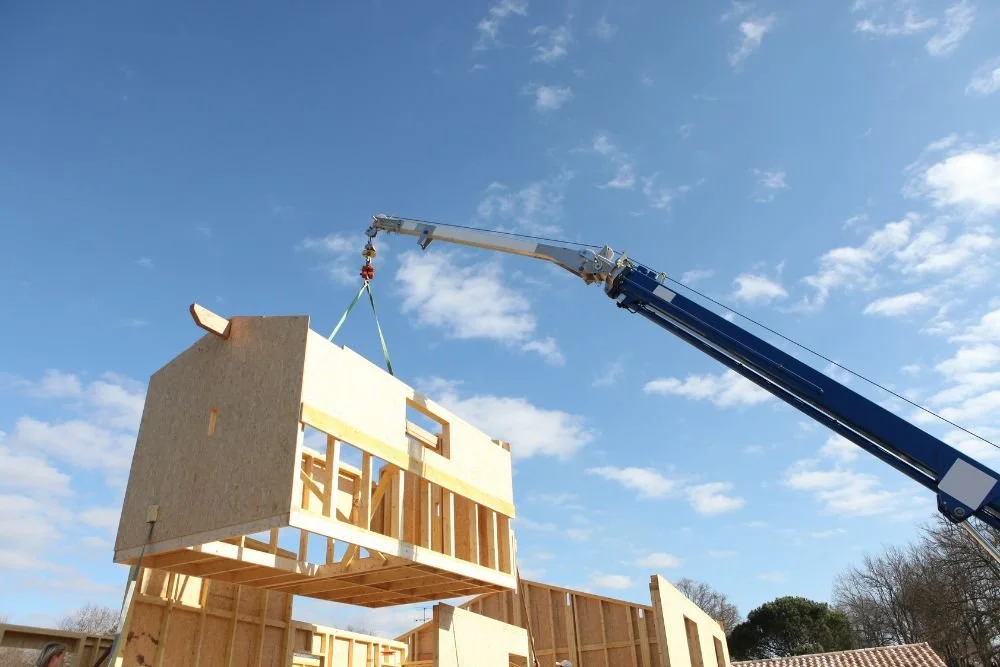
When utilizing cranes on a construction site, safety must always be the primary priority. Implementing stringent precautions is crucial to minimize accidents and guarantee a protected work environment.
- Scrutinize cranes thoroughly before each use, paying close attention to all elements for any signs of wear.
- Define clear communication channels between the crane operator and other personnel on site.
- Implement strict access control around the crane's operating area to prevent accidents.
- Train all staff involved in crane operations on safety protocols and emergency procedures.
By adhering to these crucial precautions, you can significantly lower the risk of crane-related accidents and create a safer worksite for everyone.
Grasping Load Limits and Capacity
When handling heavy objects or, it's vital to grasp the idea behind load limits and capacity. Describes the maximum weight that a can withstand without damage or. Capacity, on the other hand, indicates the total load aequipment can handle over its lifetime.
- Violating load limits can lead to {serious accidents, damage, or even fatalities.{
- To prevent harm, it's essential to regularly {check and adhere to theindicated maximum payloads.
Selecting the Right Crane Type for Your Project
Undertaking a construction project requires meticulous planning and selecting the appropriate equipment is crucial for success. Within the myriad of heavy-duty machinery available, cranes stand out as indispensable tools for lifting and moving massive loads. Identifying the right crane type depends on a variety of considerations, including the weight of the load, the height of the lift, the terrain conditions, and the scope of the project itself.
- A standard crane is an excellent choice for projects requiring a wide range of lifting capabilities. These cranes are versatile and can be used in a variety of settings.
- Rough-terrain cranes are designed for greater mobility, making them ideal for sites with limited access.
- Tower cranes, with their impressive heights, are necessary for large-scale construction projects, such as high-rise buildings and bridges.
Consulting experienced crane operators or professionals can provide valuable insights and help you select the most suitable crane type for your project's specific requirements.
Tackling Legal Requirements Permits and Regulations
Before embarking on Miami and Fort Lauderdale home values your project, it's vital to thoroughly understand the applicable permits and regulations. These legal frameworks outline the standards for operations, ensuring compliance. Failure to comply by these regulations can consequently in penalties, project delays, or even civil action. To minimize such challenges, it's highly to review with legal and regulatory experts who can advise you through the complexities of permit applications and adherence.
Remember, proactive planning is crucial to a smooth and seamless project lifecycle.
Insurance Coverage: Protecting Yourself and Your Property
In today's unpredictable world, it is crucial/essential/highly important to have adequate insurance coverage. Whether you are protecting your personal/individual/private belongings or your business/enterprise/company, insurance can provide a vital safety net/financial cushion/peace of mind. A comprehensive insurance policy will shield/defend/guard you against unforeseen events/occurrences/situations, such as accidents, natural disasters, or theft/robbery/burglary. By understanding the different types of insurance available and choosing the right coverage for your needs/requirements/circumstances, you can mitigate/reduce/minimize financial risks and provide yourself with valuable security/protection/reassurance.
It's important to regularly review/periodically examine/continuously assess your insurance policy to ensure it still meets/satisfies/covers your current situation/circumstances/needs. Consult/Speak to/Contact an insurance professional who can help you navigate/understand/evaluate the complexities of insurance and find a policy that suits/fits/matches your individual requirements. Remember, investing in insurance is not just about covering/protecting/safeguarding yourself financially; it's also about having the confidence/assurance/certainty to face the future with peace/tranquility/serenity of mind.
Communication is Key: Working with the Crane Operator
Safe and efficient tasks rely heavily on clear and consistent interaction between ground crew and the crane operator. The operator needs to understand your commands precisely to avoid accidents. It's crucial to use signal flags consistently and clearly convey any changes in plans. Regularly confirm understanding to ensure everyone is on the same page. Remember, a strong rapport can make all the difference in keeping things running seamlessly.